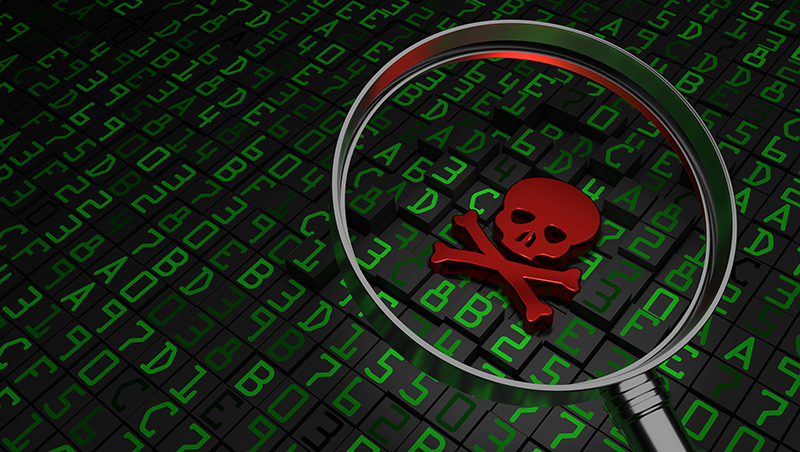Ransomware costs doubled in Q4 2019
Average ransom payments soared by 104% to $84,116, up from $41,198 in the quarter


Sign up today and you will receive a free copy of our Future Focus 2025 report - the leading guidance on AI, cybersecurity and other IT challenges as per 700+ senior executives
You are now subscribed
Your newsletter sign-up was successful
The cost of ransomware attacks more than doubled in Q4 2019, the latest research from Coveware has concluded, following a significant increase in Ryuk and Sodinokibi breaches.
The firm’s Q4 Ransomware Marketplace report, which collects anonymous ransomware data from cases handled by its Incident Response Platform, found that the average ransom payment increased by 104% to $84,116, up from $41,198 in Q3. The median ransom payment for the quarter was $41, 179.
This doubling of the average reflects the diversity of threats attacking businesses, Coveware said, with variants such as Ryuk and Sodinokibi moving into the large enterprise space to in order to extort seven-figure pay-outs. Ryuk payments, for example, were found to have hit a new high of $780, 000 for impacted businesses during the period.
Smaller firms also continued to be at risk, with ransomware as a service variants such as Dharma, Snatch and Netwalker blanketing the small business space with a high number of lower demands – sometimes as low as $1,500.
These malicious software threats are evolving, too, with ransomware attackers moving beyond just encrypting business data and adding the exfiltration of information and threat of its release if the sum is not paid.
In terms of data recovery, Q4 saw 98% of companies receiving a working decryption tool upon payment. Of that pool, victims managed to successfully decrypt 97% of their encrypted data; a slight increase over Q3.
It was also found that the average downtime for affected firms increased to 16.2 days, up from 12.1 days previously, driven by a “higher prevalence of attacks against larger enterprises” that have more complex networks to restore, Coveware said.
Sign up today and you will receive a free copy of our Future Focus 2025 report - the leading guidance on AI, cybersecurity and other IT challenges as per 700+ senior executives
It also comes as a result of ransomware evolving and implanting more advanced features. In Q4, Ryuk actors introduced a “Wake-on-LAN” feature to turn on devices with a compromised network that were originally powered off.
Essentially, the addition allows attackers to infect machines during the night when the impact of security admins is limited, ultimately maximising the number of encrypted endpoints.
Ransomware as a service variant Sodinokibi was discovered to be the most prevalent type attack during the quarter, making up 29.4% of the overall total. Sodinokibi only allows a select number of affiliates to distribute the ransomware, of which usually possess specific skills to attack targets such as managed service providers.
Once an MSP’s remote monitoring and management tools (RMM) are compromised, attackers can push the ransomware to every client endpoint it manages. Sodinokibi also adapted its extortion tactics to include threatening the release of data, Coveware added.
RELATED RESOURCE

The 3 approaches of Breach and Attack Simulation technologies
A guide to the nuances of BAS, helping you stay one step ahead of cyber criminals
“Sodinokibi’s focus on MSPs results in large payouts, but relatively small victims sizes, as most companies that utilise MSPs are small enterprises with less than 200 employees,” the firm added.
Businesses fell foul to a number of ransomware attack vectors in Q4, with the top three consisting of Remote Desktop Protocol (RDP) compromise (57.4%), email phishing (26.3%) and software vulnerabilities (12.9%).
Dan is a freelance writer and regular contributor to ChannelPro, covering the latest news stories across the IT, technology, and channel landscapes. Topics regularly cover cloud technologies, cyber security, software and operating system guides, and the latest mergers and acquisitions.
A journalism graduate from Leeds Beckett University, he combines a passion for the written word with a keen interest in the latest technology and its influence in an increasingly connected world.
He started writing for ChannelPro back in 2016, focusing on a mixture of news and technology guides, before becoming a regular contributor to ITPro. Elsewhere, he has previously written news and features across a range of other topics, including sport, music, and general news.
-
 Scalper bots are running riot as memory shortages continue
Scalper bots are running riot as memory shortages continueNews DataDome says bots are driving up the price of DRAM even further thanks to AI demand
-
 Xiaomi Pad 8 Pro review
Xiaomi Pad 8 Pro reviewReviews Xiaomi's newest entry offers strong performance, a vibrant 11-inch screen and a blockbuster battery life to maximize productivity
-
 Ransomware gangs are using employee monitoring software as a springboard for cyber attacks
Ransomware gangs are using employee monitoring software as a springboard for cyber attacksNews Two attempted attacks aimed to exploit Net Monitor for Employees Professional and SimpleHelp
-
 Ransomware gangs are sharing virtual machines to wage cyber attacks on the cheap – but it could be their undoing
Ransomware gangs are sharing virtual machines to wage cyber attacks on the cheap – but it could be their undoingNews Thousands of attacker servers all had the same autogenerated Windows hostnames, according to Sophos
-
 Google issues warning over ShinyHunters-branded vishing campaigns
Google issues warning over ShinyHunters-branded vishing campaignsNews Related groups are stealing data through voice phishing and fake credential harvesting websites
-
 The FBI has seized the RAMP hacking forum, but will the takedown stick? History tells us otherwise
The FBI has seized the RAMP hacking forum, but will the takedown stick? History tells us otherwiseNews Billing itself as the “only place ransomware allowed", RAMP catered mainly for Russian-speaking cyber criminals
-
 Everything we know so far about the Nike data breach
Everything we know so far about the Nike data breachNews Hackers behind the WorldLeaks ransomware group claim to have accessed sensitive corporate data
-
 There’s a dangerous new ransomware variant on the block – and cyber experts warn it’s flying under the radar
There’s a dangerous new ransomware variant on the block – and cyber experts warn it’s flying under the radarNews The new DeadLock ransomware family is taking off in the wild, researchers warn
-
 Hacker offering US engineering firm data online after alleged breach
Hacker offering US engineering firm data online after alleged breachNews Data relating to Tampa Electric Company, Duke Energy Florida, and American Electric Power was allegedly stolen
-
 Cybersecurity experts face 20 years in prison following ransomware campaign
Cybersecurity experts face 20 years in prison following ransomware campaignTwo men used their tech expertise to carry out ALPHV BlackCat ransomware attacks
